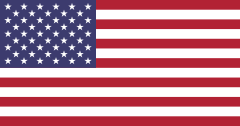 Perhaps the most darkly ironic name of any book in the Bible is that of Nahum. The word means “comfort” in Hebrew, found in many places as assuaging grief or finding or giving solace or consolation. The verb from which the noun derives can also mean “to change one’s mind” (Gen.6:5 and Ex.32:14 where YHWH is said to change the divine mind). In short, the term is overwhelmingly positive in its tone, suggesting a posture of hope and peace. Nothing can be further from the reality found in the book of the prophet Nahum.
Perhaps the most darkly ironic name of any book in the Bible is that of Nahum. The word means “comfort” in Hebrew, found in many places as assuaging grief or finding or giving solace or consolation. The verb from which the noun derives can also mean “to change one’s mind” (Gen.6:5 and Ex.32:14 where YHWH is said to change the divine mind). In short, the term is overwhelmingly positive in its tone, suggesting a posture of hope and peace. Nothing can be further from the reality found in the book of the prophet Nahum.
The content of the book may be summarized briefly and horribly: the only good Ninevite is a dead Ninevite. The prophecy is completely devoid of condemnation for Israel’s shortcomings, a hallmark of the bulk of Israel’s prophets, nor does one find a call to repentance of any sort. The mood of Nahum is an expression of great joy over the fall of Nineveh, the capital city of the vast Assyrian empire, a gigantic realm that terrorized the Middle East for centuries, not collapsing until sometime before the demise of Nineveh the city in 612 BCE, destroyed by a coalition of Medes and Babylonians. Though Israel in reality had no historical hand in the fall of the Assyrian empire, according to Nahum, it is YHWH who brought about their fall, precisely because YHWH is “a zealous and avenging God, both avenging and filled with wrath” (Nahum 1:2a), a God “who takes vengeance on all adversaries and who rages against all enemies” (Nahum 1:2b). Here is a God who may be “slow to anger,” quoting the first few words of the famous definition of YHWH found in Ex.34:6-7, but more importantly for this prophet, is a God who is “great in power,” and who will “in no way clear the guilty” (Nahum 1:3).
The hymn that forms the first chapter of Nahum is a paean to the fury and anger of YHWH against all the foes of Israel, and particularly against the monstrous Ninevites. There was, of course, ample reason to detest the Ninevites. It was they who obliterated and subjugated the remnant of the northern kingdom of Israel in 722BCE, reducing them to a tiny rump state of the huge Assyrian conglomeration that made up the expanding empire. And in 701BCE the Assyrians set their rapacious sights on Judah and Jerusalem, besieging the city, awaiting the chance to wreak destruction on them. By chance, either a plague among the Assyrian army or a crisis back in Nineveh or some other surprising event, the king was forced to lift the siege, and Judah was spared. Still, the memory of Assyrian troops remained fresh in the minds of the Israelites for decades, if not centuries. Whenever Nahum was written—suggestions have been proposed from 660 to 615BCE, but we can never be certain—the terrors of Nineveh exist in the background of the book.
We know a good deal about the Ninevites’ behaviors during war time, since in addition to being superb and well-trained soldiers, some among them were also the finest artists of their time. The numerous stone plaques, looted by western archaeologists in the 19th century from various Assyrian palaces at Nimrud and that of king Assurbanipal, depict war practices in grim detail that record horrific actions, such as the brutal assaults on cities, including actions of mutilation and beheading of enemies. These fine portraits may be seen most especially in London’s British Museum. Gazing at these monstrous scenes, as I did again recently at the Getty Villa in Los Angeles, that had borrowed some of the plaques from that museum, I was reminded of their astonishing quality as art, but more of their brash announcement of hegemony and absolute victory over all who dared stand in their murderous way. These portraits were nothing other than propaganda, warning all that Assyria ran the world, and that any who disagreed were doomed to humiliation and destruction.
Nahum is the chief example of what happens when belief in YHWH is joined with the conviction that YHWH loves Israel and detests all those nations who refused to join YHWH in that devotion to the chosen nation. “YHWH has commanded concerning you (Nineveh): Your name shall live no longer; from the house of your gods I will cut off the carved and cast images, and I will make your grave, for you are worthless” (Nahum 1:14). Chapters 2-3 are nothing other than an unrelenting and uncompromising assault against all things Ninevite, culminating in the heart-pounding picture of a Nineveh in the midst of complete annihilation: “Devastation, desolation, and destruction! Hearts faint, knees tremble, all loins quake, all faces pale” (Nahum 2:10). “Look! I am against you, says YHWH of the armies, and I will burn your chariots in smoke, and the sword will swallow your young lions; I will cut off your prey from the earth, and the voice of your messengers will be heard no more” (Nahum 2:13).
The poem concludes with an unforgettable portrait of the Assyrian king, unaware of his imminent doom. “Your shepherds are asleep. King of Assyria; your courtiers slumber. Your people are scattered on the mountains with no one to gather them. There will be no assuaging your wound which is mortal. All who hear the news of you will clap their hands (in joy). Because who has ever escaped your endless cruelty” (Nahum 3:18-19)? You are only getting what you deserve: cruelty dished out is now being met with an equal cruelty, and the result of that cruelty is endless joy for the victors.
Such an unappetizing and appalling message! Little wonder that more than a few readers of Nahum have seriously questioned its inclusion in the canon of our scripture. Yet, it sounds eerily and unmistakably very much like 21st century US America, an America that imagines itself the special gift of God to the world, a nation of people who are in all ways superior to other lesser nations, a country that offers freedom and hope and possibilities for all its citizens. America the Beautiful, the Great, the Proud, the Unique, we say. Like Nahum, we seldom if ever can look honestly at the obvious shortcomings of our nation, made so glaring by the COVID pandemic, by the continuous abuse of people of color, by the looming environmental disasters we refuse to address with any seriousness. We spend too much of our time, like Nahum, excoriating China and Iran and Russia, and neglect a careful and heartfelt look at ourselves, our cities filled with homeless men and women, our bursting prisons filled with hopeless men and women, our populace divided between red states and blue states, between those with too much and those with too little. Nahum is indeed unfortunately the prophet for our time, a loud and nasty and self-satisfied bigot, marrying God and his own selfish desires to create a dangerous brew of nationalism and exceptionalism that threatens all of us.
We need no more of Nahum for our or any other day. We need Amos and Hosea, prophets who could look at their own nation, or at themselves, and find there a challenge to repent so as to serve the world and not condemn and chortle over its pain. And for those of us Christians, we need Jesus, not the gentle meek and mild Jesus, though in the end we need that too, but the Jesus who looked deeply at his own people and loved them so much as to challenge them to become what God had called them to be, not the masters of the world, but the nurturers and lovers of that world. Away with Nahum and his nationalistic propaganda and his hatred of all things Ninevite. Give us Jesus and Amos and Hosea and Isaiah, prophets for their time and ours. Let us listen to them, lest we consume Nahum’s hatred and narrowness and become what he became, not the “comfort” of his name, but the despiser of those he judged his enemies. 
(Images from Wikimedia Commons)











